Clinton as a child and youth had grown up
in anything but a normal family and community. His actual father died
in a car accident just before Clinton's birth in 1946, and his widowed
mother remarried four years later to an alcoholic who was physically
abusive to her. His mother was active, dramatic, and secured medical
education for herself, whereas his "father" was outwardly quiet and not
terribly successful. When Clinton was six, the family moved from the
quiet little rural Baptist town of Hope, to the bustling, multi-ethnic
(from all corners of the world) and corrupt (gambling, Mafia, etc.)
resort city of Hot Springs (Arkansas). The cultural setting was hardly
that of Middle America, so dominant elsewhere in the 1950s. But it
would certainly offer the young Clinton a very broad understanding that
there were unlimited ways of going at life. Besides being a Boomer, the
Hot Springs experience would make the toleration of all social-cultural
differences totally natural to Clinton.
Just as unusual was the way young Clinton
walked by himself of a Sunday morning to attend the huge Park Place
Baptist Church where he attended Sunday School and worship regularly
(unlike his parents). Then at age nine he took the major step of
confessing Jesus as Lord of his life and getting baptized, an event he
claimed was a major part of his personal development. He wanted to be a
"good person" (quite understandable, considering all the moral
complications that surrounded him). Also, as both parents were active
and thus absent working outside the home, it was his family housekeeper
that would help shape Clinton's personal development during his youth.
The message she pressed on Clinton was basically that of "live and let
live, for God will ultimately take care of all matters." But the
brutality of his alcoholic "father" (Clinton took the name Clinton from
his stepfather, not his birth father) toward his mother, and the
emotional refuge church attendance offered him, turned the young
Clinton even more closely to God. That sense of Christian refuge would
always be a key part of his understanding of his Christian faith and
its place in his life.
Another event that shaped strongly his
faith was when the Billy Graham crusade came to town, and Graham
refused to segregate (Black/White) the event, touching Clinton's heart
deeply. Clinton would always hold a very high regard of Graham from
then onward.
Education became another escape-hatch for
Clinton, who disciplined himself greatly as a learner, and had some
wonderful teachers to challenge him. The highly energetic – actually,
highly driven – Clinton became active in a vast number of
organizations, scholastic, musical, and just social. He seemed to win
nearly every award possible, thus distinguishing himself as a natural
leader. In all this he remained a dedicated Christian, seeing himself
as called by God, to make a difference in his world.
And thus it was that he gained entrance
to the prestigious School of Foreign Service at Georgetown University,
right there in the nation's capital where he would also come to know
firsthand the idea of national politics, and grow thoughts about higher
political service. At Georgetown, he was elected president of his
freshman and then sophomore class, but lost the election his senior
year – because it was the age of rebellion (1967-1968) and classmates
had come to view him as too "pro-Establishment" at the school.
Meanwhile, not untypical of that age
group, church attendance for Clinton dropped away, and would stay that
way through his years at Oxford and Yale. It would not be until he
returned to Arkansas, and ran for public office that he would resume
church attendance. In fact it would not be until 1980, when he failed
to be re-elected as the young state governor, that his church
attendance would again become a regular Sunday event. Some of this was
undoubtedly political posturing (he had lost his re-election as
governor to an active churchgoer), but part of it was undoubtedly
authentic, as he sought God's support in the road that still lay ahead.
And yes, he was a "born-again" Christian,
but one that had a hard time identifying with the social-political
conservatism of much of the Evangelical world around him in the Deep
South. However, the huge Immanuel Baptist Church he attended in Little
Rock was, like himself, much more Liberal in its social views, and
Clinton would grow close to Immanuel's pastor, W.O. Vaught, and remain
so all the way up until Vaught's death in 1989. Hillary however would
remain true to her Methodist upbringing, attending the also Liberal
First United Methodist Church in Little Rock, even teaching Sunday
School there.
When in 1993 the Clinton's came to reside
in the White House, the two eventually attended together quite
regularly the Foundry United Methodist Church located nearby. And
Clinton's relationship with Graham deepened, Graham being called on to
deliver the benediction at Clinton's inauguration ceremony and the two
meeting often for prayer and consultation thereafter.

 The
November 1992 elections
The
November 1992 elections
 Bill
and Hillary
Bill
and Hillary  "Liberal" reforms that Clinton intended to institute blow up in his face
"Liberal" reforms that Clinton intended to institute blow up in his face





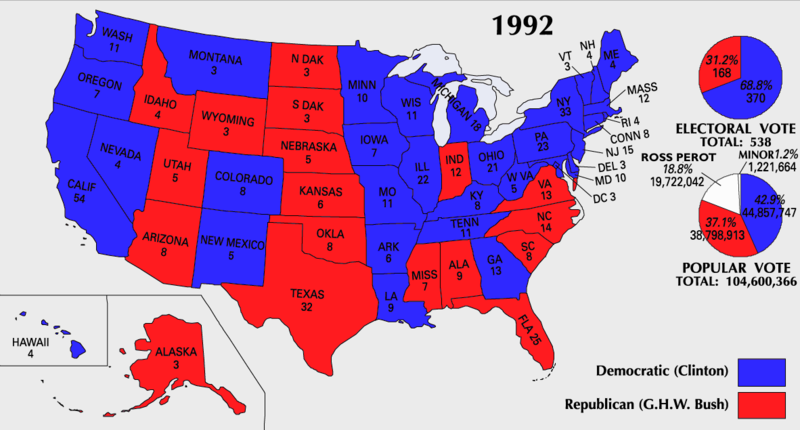
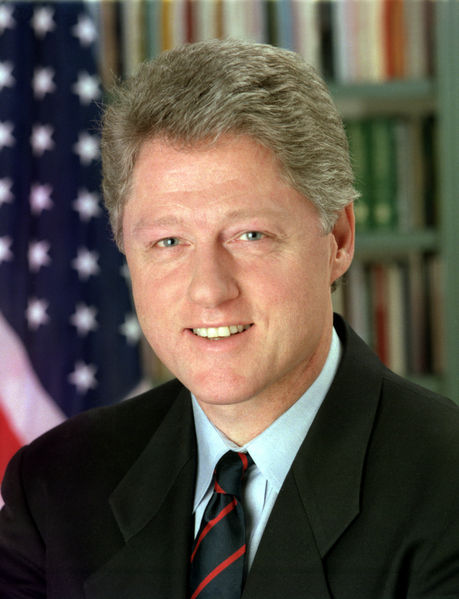
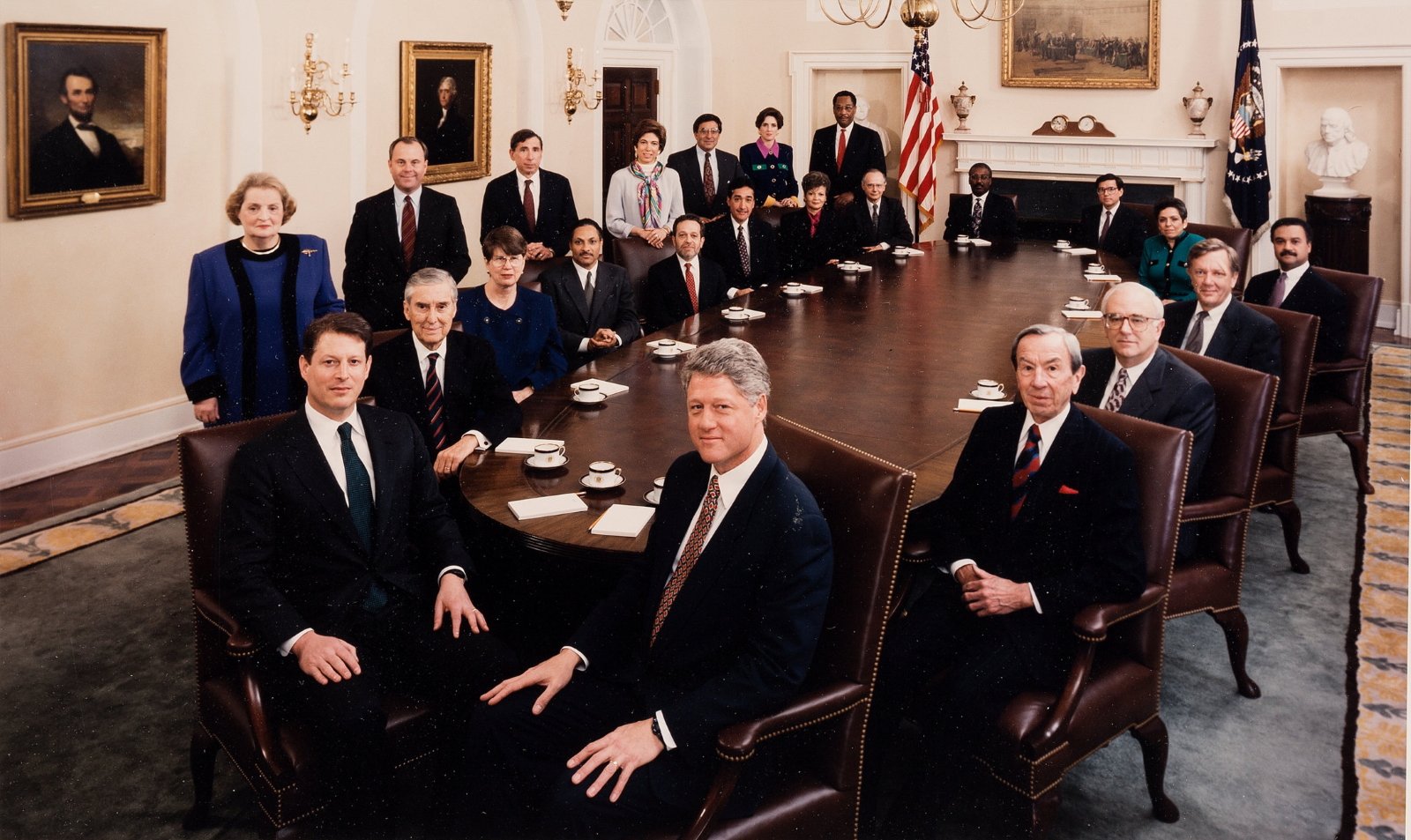

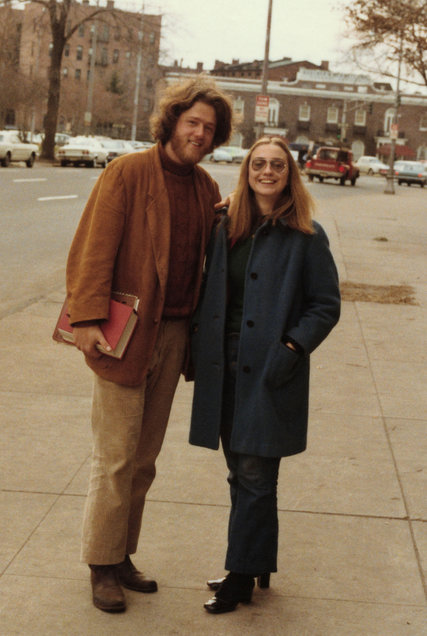
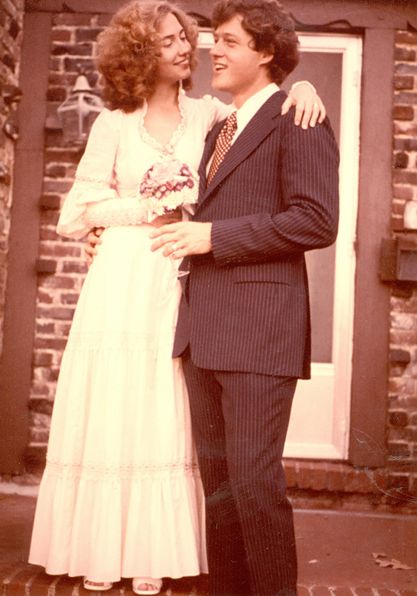
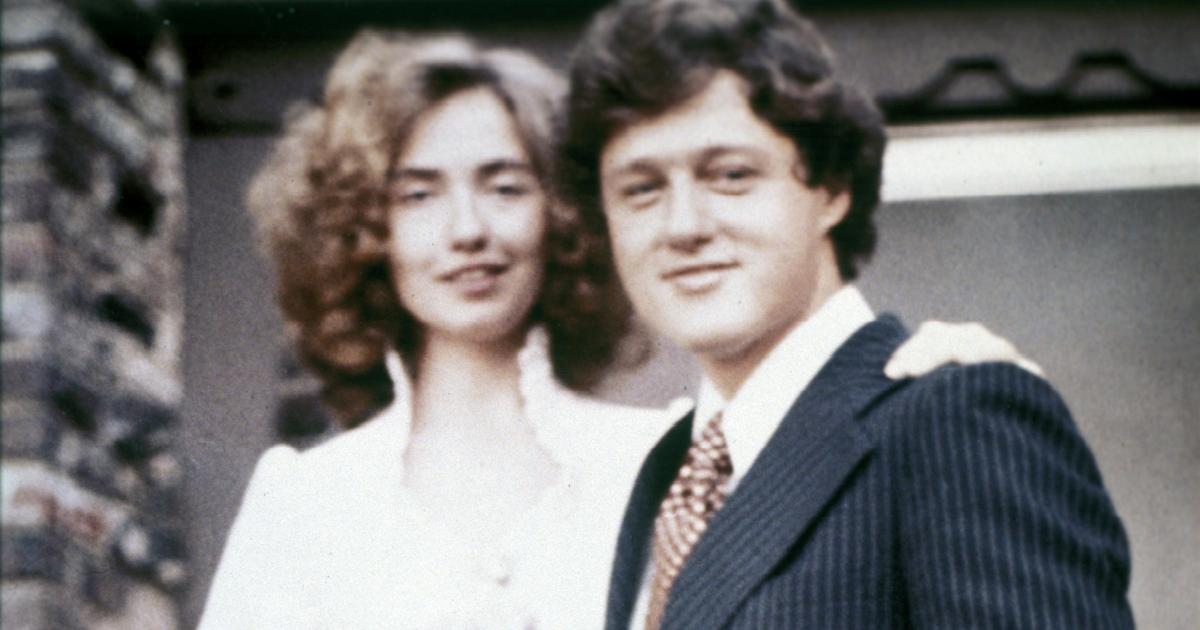
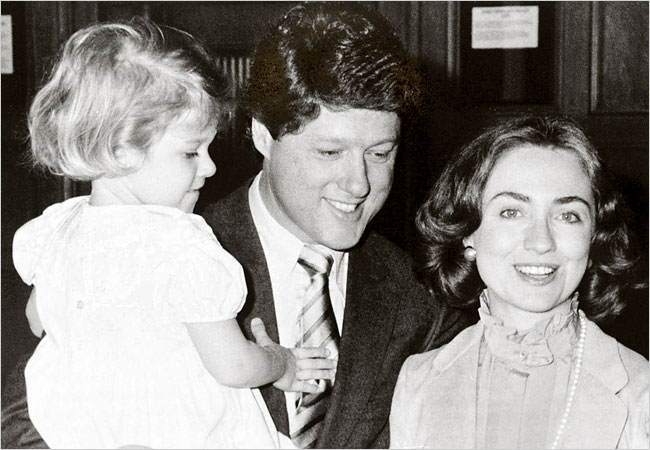
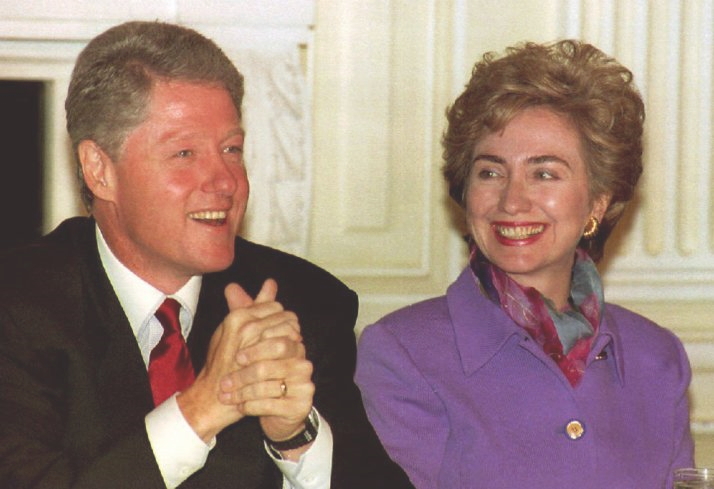
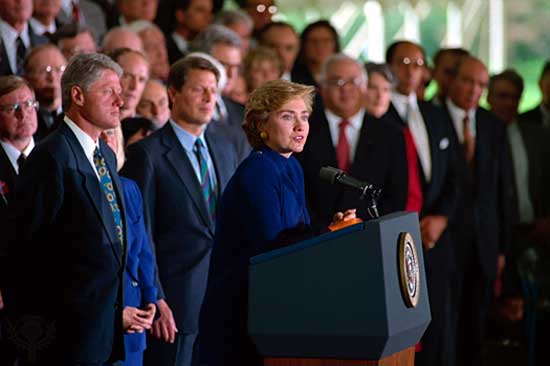
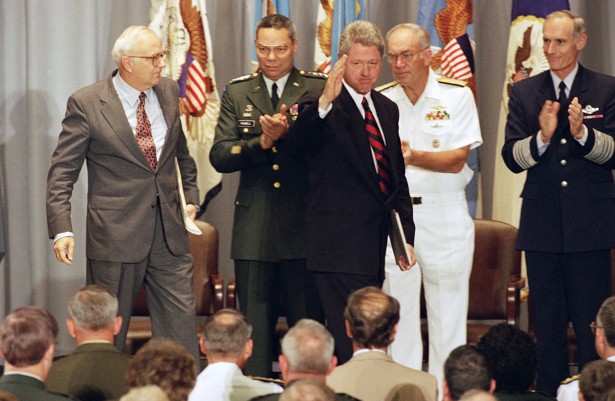
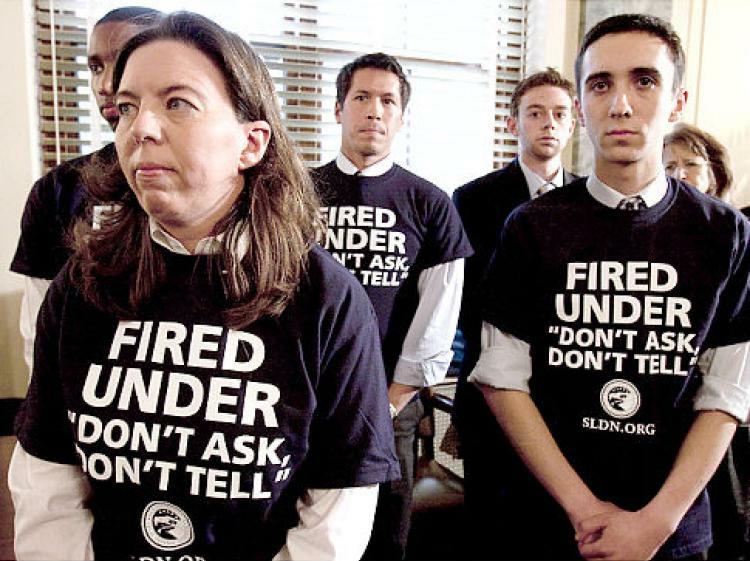

 Miles
H. Hodges
Miles
H. Hodges